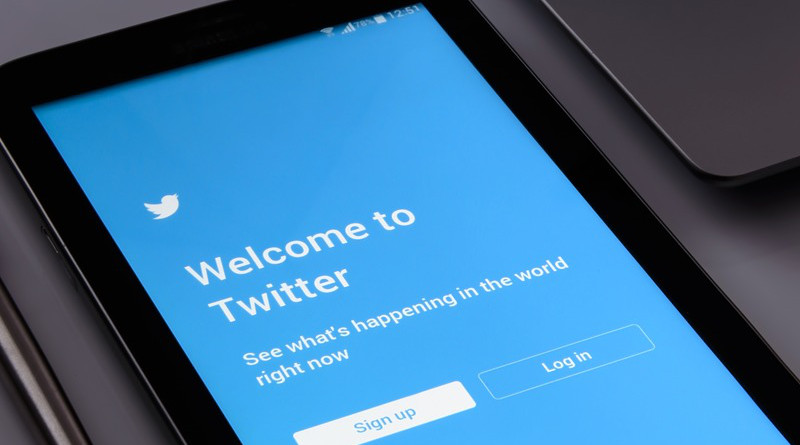Why Twitter Matters And What Musk’s Buyout Might Mean – OpEd
By Arab News
By Kerry Boyd Anderson*
Elon Musk’s plan to purchase Twitter and take the company private has prompted speculation about the social media platform’s future. Musk has offered $44 billion for Twitter, raising questions about the company’s value and sparking concerns that he will roll back content moderation policies. A fundamental question underlies the controversy that often surrounds the platform, especially now: Does Twitter matter?
There are good reasons to question the social media site’s importance. Twitter’s first quarter net income for 2022 was $513 million, according to its latest report, but the company has mostly been unprofitable over the last decade. It has far fewer users globally than platforms such as YouTube, Facebook, Instagram and TikTok.
Some social media analysts and political commentators have argued that “Twitter isn’t real life,” noting that its user base is not representative of broader publics. For example, in the US, Twitter users are more likely to be young, Democratic and highly educated and wealthier than the general population. Among Democrats, Twitter users are much more likely to be progressive than the broader Democratic electorate. Globally, Twitter users are likely to be under 50 and particularly to be in the 25 to 34 age range.
These arguments, however, often miss the more important points. While it is true that Twitter is not fully representative of the broader population, critics often exaggerate the differences. Polling by the Pew Research Center has found that, in the US, the gender and ethnic or racial composition of Twitter users very closely mirrors the broader population. While there is a discernible lean toward Democrats, the partisan divide among Twitter users is much smaller than on many issues today, where there are often enormous partisan gaps in polls.
Twitter is a relatively stronger force in some countries than in others, which affects its influence in specific states. Data from Hootsuite, based on Twitter company reports, finds that 80 percent of Twitter’s monetizable daily active users — one way to measure users — are located outside of the US. Twitter is particularly popular in countries such as Japan, the UK, Saudi Arabia and Brazil. Globally, Twitter users skew relatively young (under 50) and a majority are male.
Numbers alone are useful for advertising but provide very limited insight into a platform’s overall influence. Twitter’s impact extends far beyond its actual user numbers. Indeed, as Pew noted, a rather small group of Twitter users are very active on the site — data from 2019 found that 10 percent of US adult users produced 80 percent of US tweets. Twitter’s power lies in the highly engaged, influential people who use it; their numbers are relatively small, but their social and political footprint is large.
Twitter is most obviously influential in politics. The platform is particularly useful for activists. It is a helpful tool for Black activists in the US. Donald Trump very effectively used Twitter in his political rise and election as president; since losing his Twitter account, he has struggled to find another megaphone with the same reach. Many other politicians in a range of countries use Twitter to communicate their messages, interact with followers and attack rivals.
Twitter’s reach extends far beyond social media. Many mainstream and other media outlets pick up conversations and statements from Twitter and integrate that information into their broader reporting. For example, Trump’s Twitter audience was limited, but when Fox News picked up his statements from the site, it amplified his Twitter messaging to a much wider audience.
Journalists are often heavy users themselves. They can post about breaking news faster than they can produce a fully edited article or video and can use Twitter to follow statements and messages from politicians, governments, organizations, activists, on-the-ground witnesses and more. In the war in Ukraine, for example, Ukrainians have used Twitter to tell the world about their experiences and internet sleuths have used this information to gather war crimes evidence. With its simple and immediate posting, Twitter is also useful for emergency responses.
The platform provides a crucial space for dialogue within specific communities. There are Twitter communities focused on the military, academia, ideologies, religion, health, science, art and much more. It has become a place where people — particularly elites — workshop ideas with other people in their online communities. Those conversations often expand into real life, contributing to policies, research, activism and more. In this way, Twitter’s influence extends far beyond the specific posts on the site.
Twitter also offers a useful tool for structured and unstructured research. For example, US Army Lt. Gen. Ted Martin recently noted that Twitter offers him insight into the thoughts and discussions of members of the military that normally would not reach such a senior officer. Researchers also use Twitter in more structured ways, such as a recent university study on attitudes toward vaccines.
Twitter has nastier ways of reaching into real life. Online harassment and so-called doxxing (publicly revealing previously private personal information about an individual or organization) often have real-world impacts, including threats, lost jobs and damaged reputations.
Whether Twitter’s role in the world is more positive or more negative, it clearly matters. What happens on Twitter affects the real world in many ways — far more than its user numbers alone suggest. Therefore, Musk’s purchase of the platform and his plans for change matter too. The biggest problem might simply be concentrating so much power in the hands of one owner.
- Kerry Boyd Anderson is a writer and political risk consultant with more than 18 years of experience as a professional analyst of international security issues and Middle East political and business risk. Her previous positions include deputy director for advisory with Oxford Analytica. Twitter: @KBAresearch

